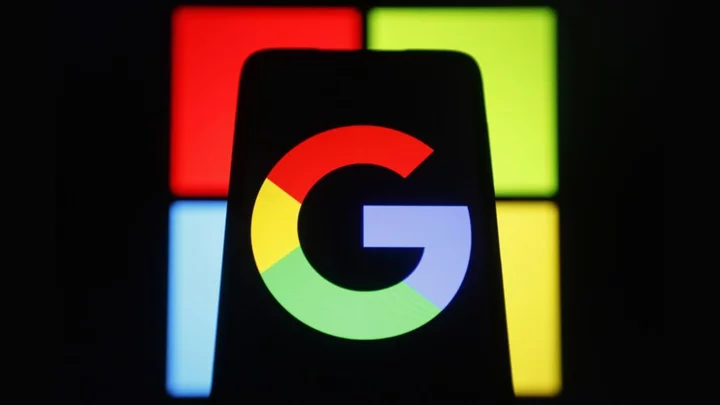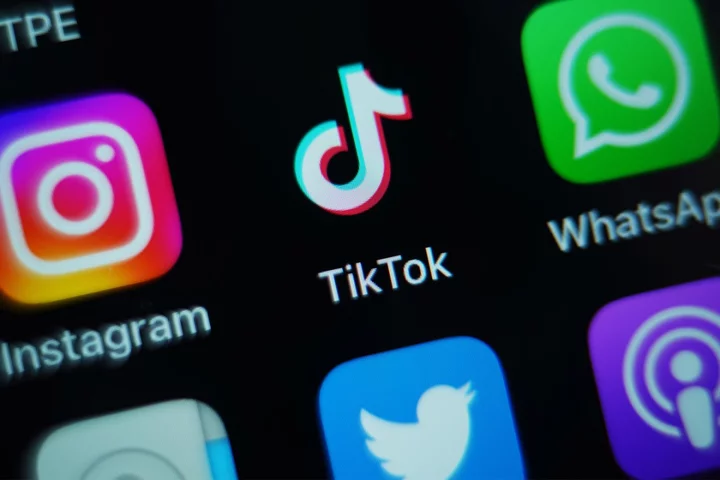
Whatever Happened to Vibrating Beds?
The buzzing mattresses used to be a staple of seedy motels everywhere. Then they disappeared.
2023-07-27 01:18

20 Popular Google Doodle Games You Can Still Play
There’s a Google Doodle game for practically everything, from garden gnomes and ‘Doctor Who’ to magic cats and boba.
2023-07-26 02:22

Spotify premium subscribers in UK to now pay £1 extra per month
Spotify has increased the subscription prices of its premium plan in many parts of the world, with an individual plan going up by £1 in the UK. The price rise comes following Spotify chief Daniel Ek suggesting during an April earnings call that there could be an increase in subscription fee soon. The changes also come as other streaming platforms, including Netflix and Apple Music raised their subscription prices recently. “The market landscape has continued to evolve since we launched. So that we can keep innovating, we are changing our Premium prices across a number of markets around the world,” the audio steaming giant noted in a blog post on Monday. “These updates will help us continue to deliver value to fans and artists on our platform,” it said. In the US, the company said the premium plan for individuals would now cost $10.99 (£8.55) a month up from the charge of $9.99 (£7.77) it has levied since the platform’s launch in 2011. Along with the price rise for a single individual premium subscription plan, the cost of Duo is increasing from $12.99 (£10.11) to $14.99 (£11.6), and for the Family plan from $15.99 (£12.44) to $16.99 (£13.22), and the one for students from $4.99 (£3.88) to $5.99 (£4.66). “We will raise it and that price increase will go down well because we’re delivering a lot of value for our customers,” Mr Ek said, noting that the changes would happen “when the timing is right.” Spotify said users would be given a “one-month grace period” before the new prices take effect. Other countries where the new price regime will take effect include Australia, Belgium, Canada, Denmark, Spain, Finland and France, among several others. “Starting from today, existing subscribers in these markets will receive an email explaining what this means for their account,” the company said. “We occasionally update our prices as we continue to innovate and invest in giving you better listening experiences and more value than ever before.” Read More Sony has officially unveiled the new WF-1000XM5 wireless earbuds – here’s everything you need to know WWF capitalizes on death of Twitter bird logo to highlight real species facing extinction Watch the moment Twitter blue bird sign is taken down from San Francisco HQ
2023-07-25 14:16

Stereophonics’ Kelly Jones on AI: Art should come from people
Stereophonics frontman Kelly Jones has spoken about the growing use of artificial intelligence in music saying that “art should come from people”. The 49-year-old lead singer of the rock band which formed in Wales in 1992 also questioned the move towards multiple songwriters on a release. Jones spoke to Times Radio at Latitude Festival in Henham Park, Suffolk, on Sunday after he played with his new band Far From Saints. The Welsh musician said he had not realised until attending the Ivor Novello Awards that AI technology is being increasingly used to “finish off people’s songwriting”. He also said: “I’m not against forward-thinking technology and how things are progressing, but I think art should come from people, I mean the basics of it anyway. “I think art has always been somebody’s expression, a real person’s expression from a heart, from a head. “If you’re going to start an idea, then a computer finishes it, I mean, it’s OK, but it’s just about algorithms and things like that, it’s not my personal feeling on where it should come from. “I’m not really into 10 songwriters on a song. “It’s like if you’re making painting, you’ve got 10 painters chucking paint on a canvas, I mean, whose f****** painting is it anymore?” Far From Saints have been touring festivals after releasing Let’s Turn This Back Around earlier this year. Jones, who set up his new band with Patty Lynn of The Wind And The Wave, said since the pandemic and the UK’s break from the European Union it has become harder to make money from music. He said: “It’s kind of a nightmare with… Brexit and all that sort of stuff. “So it’s a very different place since Brexit, since Covid, since all of that stuff. “So it’s not easy to make a living of it if you’re a brand new kid coming out onto the street, ‘just let’s get in a van and go make music’ – it’s kind of hard.” There has been a mixed response to the technology in the music business, with country star Dolly Parton voicing concerns about AI while Black Eyed Peas member Will.i.am has taken an optimistic view on new music software. Last month, Parton told a press event: “I think I’ve left a great body of work behind. “I have to decide how much of that high-tech stuff I want to be involved because I don’t want to leave my soul here on this Earth.” Read More Charity boss speaks out over ‘traumatic’ encounter with royal aide Ukraine war’s heaviest fight rages in east - follow live TikTok is now most favourable single source of news in UK teenagers, research shows Talk of AI dangers has ‘run ahead of the technology’, says Nick Clegg Eurostar passengers can avoid UK passport checks by having faces scanned
2023-07-23 20:59

How to Scan Documents Using Your iPhone's Notes App
You don't need to use a bulky scanner to scan your documents. If you own an iPhone, it's as easy as taking a picture.
2023-07-21 21:46

TikTok is now most favourable single source of news in teenagers in the UK, research shows
TikTok is now the most used single source of news across all platforms for teenagers in the UK, new research from Ofcom has found. The regulator’s News Consumption In The UK 2022/23 report found TikTok is the favoured single news source among 12 to 15-year-olds. TikTok is most popular with young people and used by 28 per cent of teenagers, followed by YouTube and Instagram, both at 25 per cent, according to the figures. But, taking into account all news content across its platforms, the BBC still has the highest reach of any news organisation among this age group – used by 39 per cent of teenagers. Over the last 12 months we've seen most major publishers refocus their strategy, partly as otherwise there's more risk of young people seeing unreliable news Nic Newman, Reuters Institute for the Study of Journalism It comes after the UK Government banned ministers from using TikTok, which is a Chinese-owned video-sharing app, on their work phones following a security review. The House of Commons and the Lords also cited security concerns as they decided to ban the app across the Palace of Westminster. TikTok, owned by Chinese internet company ByteDance, argues it does not share data with China. However, Beijing’s intelligence legislation requires firms to help the Communist Party when requested. Nic Newman, senior research associate at the Reuters Institute for the Study of Journalism, said there is a big shift taking place in terms of how people consume news and that more publishers have been joining TikTok. He said: “TikTok, Snapchat, Instagram, the people younger people are listening to tend to be influencers, personalities, they film for a range of reasons – in some instances you have specific news creators, in other cases it’s just personalities, comedians, talking about issues including free school meals. “In terms of the implications for the industry, one of the things we’ve really seen in the last 12 months is we have publishers who are very reluctant to go into TikTok, but over the last 12 months we’ve seen most major publishers refocus their strategy, partly as otherwise there’s more risk of young people seeing unreliable news. “That’s more challenging as there’s no business model for TikTok, so it’s very hard. “It’s just starting to build relationships with young people. “There’s been surveys that show TikTok is amongst the least trusted platforms, partly as it’s one of the newest.” He added: “During the war in Ukraine we saw young people going to traditional news brands – but not for very long, it depends what the subject is to some extent. “Covid was a big change because people were at home and people were talking about Covid on TikTok and people had a bit of time. “That’s a case of very serious news being carried on TikTok. “Passions and celebrity news, that’s a big part of what’s going on with the younger people, but there’s also serious news, that’s the wider big shift.” When considering perceptions of trust, teenagers rated traditional sources better than their online counterparts, as BBC One/Two was trusted by 82 per cent of its teenage users, compared to TikTok at 32 per cent, Instagram at 38 per cent, Facebook at 41 per cent and Snapchat at 31 per cent. Twitter was the exception, with a 50 per cent rating on trust, Ofcom found. The news topics of most interest to younger teens generally are “sports or sports personalities” (23per cent), “music news or singers” (15 per cent), “celebrities or famous people” (11 per cent), “serious things going on in the UK” (8 per cent) and news about “animals or the environment” (9). Meanwhile, those aged 16-24 are much less likely than the average adult to access news from traditional media sources, such as TV (47 per cent vs 70 per cent), radio (25 per cent vs 40 per cent) and print newspapers (16 per cent vs 26 per cent). Social media platforms dominate the top five most popular news sources among 16-24s. Instagram is the most-used single news source at 44 per cent, followed by Facebook at 33 per cent, Twitter at 31 per cent, and TikTok at 29 per cent. Coming in joint second, BBC One at 33 per cent is the only traditional media source to feature in the top five. But Ofcom said its figures show broadcast TV news maintains its position as the most popular source among adults in the UK, used by 70 per cent, which rises to 75 per cent when broadcast video on-demand news content is included. BBC One remains the most-used news single source across all platforms at 49 per cent, followed by ITV at 34 per cent – although both channels have seen gradual declines over the past five years as they are down from 62 per cent and 41 per cent respectively. Similarly, Facebook – the third most popular news source among adults – is showing signs of decline, from 33 per cent to 30 per cent over the same period. TikTok’s popularity as a source of news for adults is growing, with one in 10 adults saying they use it to keep up with the latest stories – overtaking BBC Radio 1 and Channel 5, both at 8 per cent for the first time. TikTok, at 55 per cent, along with Instagram, at 53 per cent, is particularly popular among adults for celebrity news. Twitter is the favoured destination for breaking news, with 61 per cent of adults choosing it, and political news, at 45 per cent, while Facebook is the preferred source for local news, at 59 per cent. Among users of the platforms, news sourced via social media is rated lower for trust, accuracy and impartiality than the more traditional sources of news, but is rated moderately well on “offers a range of opinions”, “helps me understand what’s going on in the world today” and being “important to me personally”. One in ten (10 per cent) 16-24s claims to consume no news – twice the figure for all adults. After a long-term decline in the use of print newspapers – with overall reach of these news brands being supplemented by their digital platforms – Ofcom’s most recent data shows print newspaper reach was consistent between 2022 and 2023. Just over a quarter of adults (26 per cent) accessed news via print newspapers, increasing to 39 per cent when including their online platforms. The Daily Mail/Mail on Sunday and The Guardian/Observer were the most widely-read print and digital news titles overall. Read More Charity boss speaks out over ‘traumatic’ encounter with royal aide Ukraine war’s heaviest fight rages in east - follow live Talk of AI dangers has ‘run ahead of the technology’, says Nick Clegg Eurostar passengers can avoid UK passport checks by having faces scanned ‘Hostile states using organised crime gangs as proxies in the UK’
2023-07-20 12:24

Why Is TV Called the ‘Boob Tube’?
When TVs became popular in the 20th century, some people started calling it ‘the tube.’ That nickname soon spawned an even catchier one: ‘the boob tube.’
2023-07-20 04:26

Autocado: Chipotle’s New Guacamole Robot Cuts, Cores, and Peels Avocados
Chipotle’s ‘Autocado’ takes the drudgery out of making guacamole.
2023-07-19 21:16

The iNaturalist App Is Like Shazam for Plants, Animals, and Insects
It has even led to the discovery of a new species.
2023-07-18 05:26

New technique represents major breakthrough in search for aliens, scientists say
A new technique is a dramatic breakthrough in the search for alien life, astronomers say. Researchers at the Breakthrough Listen project based at the University of California, Berkeley say they have developed a new way to be sure that any potential signal is really coming from space – and not from something more boring. Astronomers spend vast amounts of time looking for radio signals that might have come from alien civilisations as part of work on the search for extraterrestrial intelligence, or SETI. But they have in the past been fooled by very human technology, such as cellphones, microwaves and car engines, that can produce a blast of radio signals that look as if they have come from distant worlds. One way to check whether signals are really alien is to point the telescope elsewhere and then repeatedly return to the same spot, with the hope of seeing the signal again and ensuring that it is not a false alarm. But that is not foolproof – and only works if the signal sticks around. Some of the most promising radio signals might only be detectable once. The so-called “Wow!” signal, for instance – a radio signal detected in 1977 that was so shocking the astronomer who found it wrote the exclamation on a printout – has not been detected since, and astronomers still do not know whether it was an alien message or just a mistake. Now scientists have devised a new test that can be used to see whether a signal has really passed through interstellar space, which should help show that it is not from elsewhere on Earth. It works by looking for “scintillation” – the changes in amplitude of a signal as it is affected by the cold plasma of space. “The first ET detection may very well be a one-off, where we only see one signal. And if a signal doesn’t repeat, there’s not a lot that we can say about that. And obviously, the most likely explanation for it is radio frequency interference, as is the most likely explanation for the Wow! signal,” said Andrew Siemion, principal investigator for Breakthrough Listen and director of the Berkeley SETI Research Center, which operates the world’s longest running SETI program. “Having this new technique and the instrumentation capable of recording data at sufficient fidelity such that you could see the effect of the interstellar medium, or ISM, is incredibly powerful.” Dr Siemion called the breakthrough “one of the biggest advances in radio SETI in a long time” and said that it would be the first time researchers would be able to differentiate a real signal from a false alarm, even if it was only detected once. The technique can only be used for signals that have travelled 10,000 light years or more to Earth, researchers note. If it was closer to us, the scintillation effect cannot be seen because they are not travelling through enough of the interstellar medium, or ISM. The research is described in a new paper, ‘On Detecting Interstellar Scintillation in Narrowband Radio SETI’, published in The Astrophysical Journal. Read More Battery breakthroughs are about to trigger a transport revolution Huge asteroid nearly crashes into Earth – and is only spotted days later ChatGPT rival with ‘no ethical boundaries’ sold on dark web
2023-07-18 00:16

Forgot Your Passcode? There's a Way to Unlock Your iPhone Without It
Getting locked out of your iPhone is frustrating. But it’s possible to solve the problem of a forgotten passcode without hiring a hypnotist.
2023-07-14 03:24

The Reason Why Manhole Covers Are Round
There are a few reasons why manhole covers around round. Here's how to answer if it ever comes up.
2023-07-11 06:24
